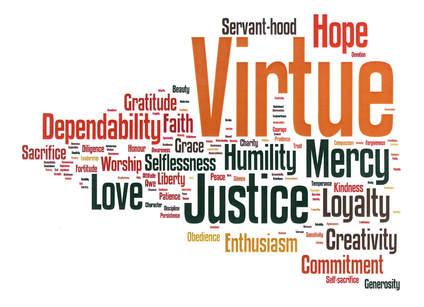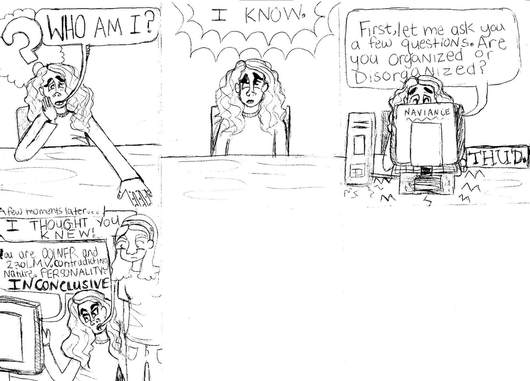 By Josee Li Listen up CRN! Some seniors are ready to leave us some advice before they enter the next chapter of their lives. Here’s what they said: Sasha Hofman: “In high school, do what truly interests you, not what you think colleges will like to see. It will pay off in the end.” Connie Fang: “Give yourself room to take risks and to try new things and embrace the challenges, risks, and rejections that might come with it. Life begins at the end of your comfort zone, so approach new situations with an open mind so that you can grow and learn from them.” Nikky Nemzer: “Never underestimate how nasty the whole college process is. Start planning what you want to do and where you want to go by the end of your sophomore year so that when you get to junior year and all the deadlines start flying by you, you at least have a vague idea of what to do. Also, at the end of your junior year starting thinking about your college essays and start writing the second you see the prompts. Being prepared is an absolute necessity and (as someone who severely procrastinates) there is no such thing as too early.” Jules Bernstein: “Make sure you get involved in clubs and activities!” Lydia Roe: “Time management and prioritizing are actually really helpful skills.” Brynn Smith: “It doesn’t matter how smart or not you are if you don’t have the time management skills to match it. The further along you get in high school (and beyond) the more important time management becomes. Learning to start assignments ahead of time rather than the night before they’re due has probably been my biggest key to success.“
0 Comments
 By Margaret Zheng I think many of us aren’t thinking. We aren’t feeling. We “go through” school, as if it were a necessity and not an opportunity. (And I speak of myself, too.) School may seem an institution that “is,” apart from us students, and whatever it “is” we must accept or otherwise escape. Live with it, or go somewhere else. I once thought I might escape. I dreamed of the Lawrenceville School, where -- I believed -- a culture of thought and empathy is strong and vibrant, where students are always engaged in bettering their school. Later, a former classmate who now attends that school informed me that the reality of private school education, though having its merits, is far from the utopia I envisioned. But I am here, at CRN, and not there. What envelops my consciousness now is not some disappointment of a reality, but rather a dream, an ideal, a hope transcending myself. I cannot bear being numb to hatred and blind to apathy. I’ve always believed our strength in Council Rock was our sense of community, our welcoming embrace. I thought I could revel in the love, pride, and unity of CR, even if academically I might be better served somewhere else. I thought of CR as a place where cliques, intolerance, and harassment exist only in the shelves of fiction. Or I thought they did. I hope. I cry, because I am part of the problem. I am not the kindest, most open-hearted person myself. I am quick to judge and eager to analyze, and my voice grows easily sharp and loud because of my passions. Prejudice, slurs, and hate swim in the deep, dark oceans of myself, and sometimes their presence cause me to fear or despise myself. It is human to love, and it is human to hate. The healthy choice is not to suppress our darkest sentiments and give them impetus to grow in our subconscious, but to be aware of them and choose not to act on them. Starve the wolf of evil, and feed the wolf of good -- but of both wolves shall we keep aware. Be not afraid of thoughts and feelings, for they are not your actions; they are not you. Feeling never necessitates action; injury never mandates revenge. Practice mindfulness, and entrain peacefulness. We all live in the same small world. We all love, and hate, and laugh, and cry…I forget that sometimes. We cannot forget. Like Lancelot of The Once and Future King, a lover of principle who feels plagued with moral imperfections, I sometimes act only upon a strong sense of “ought,” in lieu of compassion or empathy. But other times, I do feel, and when I feel, I am awash with emotion. The surplus of sentiment reminds me that in harder times, I could so frightfully easily be a bystander to hate or a perpetrator of hurt, but I truly cannot be either. I cannot escape the problems of school, nor can I let them be. I must fight for virtue. The motto of the Lawrenceville School, Virtue semper viridis, or “Virtue is always green,” still resonates deep with me. The sentiment expressed is not merely environmental, but also intellectual and personal and so much more. It means that virtue -– goodness, humanity, love -– is never outdated, and that we must at times take a fresh look at ourselves and evaluate how we can improve. It means that due to the tide of the times, no people remain virtuous by staying the same –- they must exert sustained effort to grow as persons, like plants seeking always the good light of the sun. It means that the ideas of virtue, like a detoxifying tea, rejuvenate one’s soul and brighten one’s existence. A community reflects deeply and honestly and then takes meaningful action. I have long been fascinated with the varied meanings of the motto, and now I wonder, can the idea of ever-vibrant virtue transform the community of North? Is a community of thought, empathy, and welcome dialogue only possible in a private school, in which students attend out of choice? Perhaps the issue is not our iron ties to bureaucracy -- ties which may be only as powerful as our submission allows -- but a culture of not caring, of indifference towards learning, towards fellow persons, towards love and hate. Too often I hear a tone of sarcasm in our school. I hear racial jokes, political quips, rude remarks, and not honest discussion about suicide. I have always felt something was wrong with them, with the pervasiveness of them, but they sometimes seem too entangled into our culture to protest. So often when I have expressed concern, I have been told not to take matters so seriously. Okay, so maybe I need to laugh sometimes, for endorphins’ sake. But the undeniably serious often begins with the seemingly innocuous. We need more school-wide gatherings, not for recreation or even for charity -– who can care genuinely for a cause just by tossing money at it, as a hobby? -– but for reflection and remembrance of unity. Perhaps we can have a Challenge Day, a day of compassion and connection, a springboard for a more welcoming future. Perhaps we can learn beyond the categorizations of grade levels, beyond the walls of the classroom, beyond the restraints of academics and curriculum. Perhaps we can all collaborate and teach ourselves what is to be human: to love, to hate, to hope, to fear, to wonder, to aspire, to imagine, to act, to be. Can we be genuine and find the essence of issues, thinking past the sarcasm and cynicism, past the political divisiveness, past our shared tendencies to dismiss the dauntingly important, to pass it off as someone else’s job, to cling to the status quo as if our pulse of life depended upon it, as if change were not our fate from the start when we grew from embryo to infant to child of dreams? Can we seek to experience empathetically and learn about lives different than ours, and celebrate and love our diversity, our diversity of diversities? Can we, amidst the differences, find the spark and spirit that unite us all, the light of life? These are the watershed years for Council Rock. We have been agitated, shocked, confused, relieved, divided between ecstasy and terror, and it is from chaos and uncertainty that we can grow in strength. I want us to think, deeply, and I want us to feel, truthfully. I want us to care about our school, our psyches, and our communities, and make something happen. Where is our spirit, our passion and compassion? It’s kindling, I hope. It shall burn us alight.  By Maithri Nimmagadda The existential feelings of not knowing who you are or who you want to be in the world coincide with being a teenager, but part of growing up is understanding yourself. The Naviance Career Test that CR North students take before graduation aims to help in this goal, so many students are eager to take it. Unfortunately, the Naviance Career Test does not aid in helping students find out who they are. Aparna Dev, a CR North student, highlights one primary issue with the test, “I don't know how specific a personality test with two options can be.” For many, the test seems so vague that it cannot help students, but can only confirm some basic personality traits they are already aware of and in some cases provide inaccurate assessments of personalities. The test attempts to categorize people with simple questions and answers, but the problem is that most people cannot be accurately described with such a structure. This flaw leads to inconclusive or contradictory results for some students, such as Kacy Liang. After taking the test twice, Liang’s results were “inconclusive.” “It [the test] technically said my personality doesn't fit into any of them [the categories].” Such outcomes testify to how the test must be improved with more complex and diverse questions and answers. Students cannot be helped to understand themselves or what to do in the future if the Naviance test provides no real guidance. As a result, several students disliked taking the test, even calling it a waste of time. “It’s stupid," Charlie Alt said. Students become irritated and distraught, and the test becomes counterproductive by creating instead of relieving more angst and stress for students. Thus, the Naviance test structure and results often crush the potential for a helpful experience. Hopefully, with improvements, the test can help students with accurate rather than inconclusive or vague findings since many students do want to know more about themselves and their most suitable career options. |
Archives
February 2022
Categories |
 RSS Feed
RSS Feed
